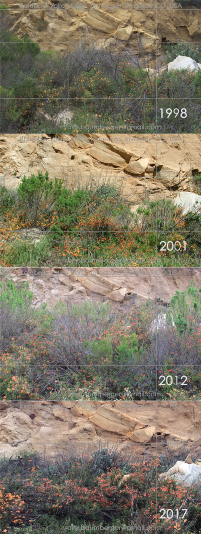Epilogue
- The author has been carrying these ideas and views published on the Web for a while. The Internet now provided an ideal platform to write these ideas from the soul. Is he losing something? The opposite is the case. He can only win.
- On the one hand, scientific knowledge belongs to the public, if these findings contribute to a better understanding of our world. But all persons should benefit from it. Now, this website has been called thousands of times. That speaks for the mass. The sheer volume, however, does not reflect their quality. The quality only shows up over time, if at all. By examining the published PP hypothesis, you should try to falsify the theory. Maybe the threads continue to turn in this direction. If a scientifically thinking person feels addressed by this site. Who knows, perhaps someone has already observed something similar?
If you want to study a so called plant "hybrid system" yourself, do a long-term study (>10 years). The perennial plants should have large flowers, and the two forms should differ in their pollinators and flower color. Mark the plants permanently with a numbered metal tag. Attach these underground and search for them with a metal detector. In this way, the fewest tags are removed by others. In addition, be sure to know the genomes and transcriptomes of both forms. This way, you can track what has been changed genetically during the transformation. After all, there are hundreds to thousands of changes. Remember that such processes are poorly understood and that conventional basic knowledge about evolution will not help you. You have to find out yourself what is going on in your object of study.
If one has found such a transition and one thinks to have discovered a unique process, one can never be sure whether at another ecologically similar place the same practically at the same time also takes place. In any case, such processes are repetitive and always move on similar paths in phase space.
rolfy MARCH 2024
***
No new plants have been at this site during the last 25 years.
Less than 1% of sampled Diplacus seeds germinate still after a period of 25 years, which is amazing.


